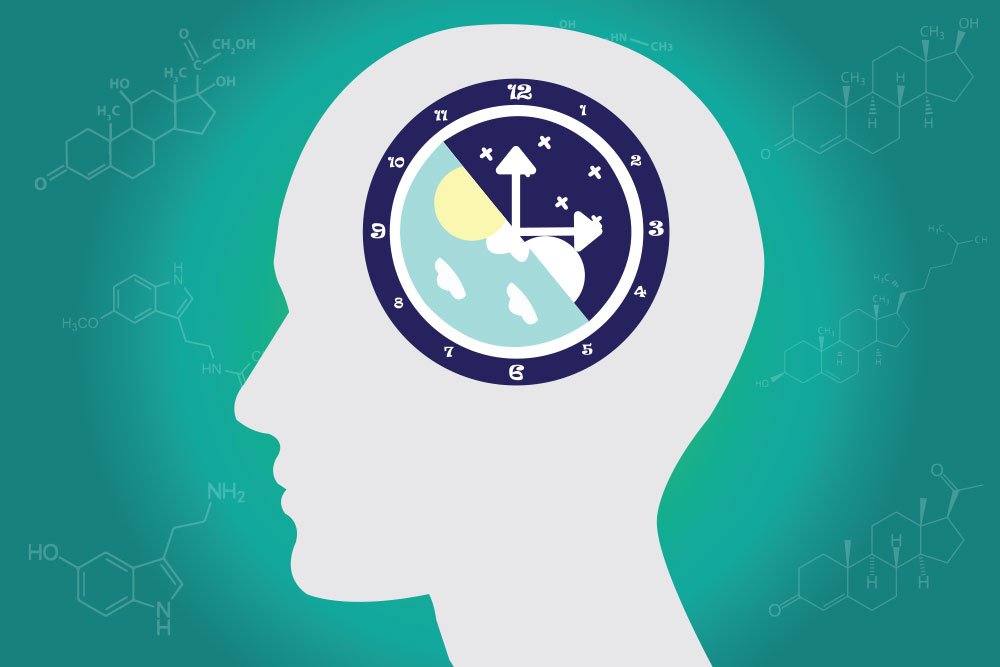
A bad night’s sleep can have a big impact on our productivity levels and mood. If you suffer from mental health conditions like bipolar disorder, anxiety, schizophrenia or depression, not sleeping well at night can make things worse. Let’s look into this and pinpoint why sleep is important for your mental health.
What Is Sleep?
According to the World Health Organization,
‘Sleep is a basic human need and is essential for good health, good quality of life and performing well during the day’.
Sleep can be further defined as a state of reduced physical and mental activity. More simply, sleep is a period of rest.
Over the past 50 years our sleep has decreased by as much as 1.5 to 2 hours per night. Sleeping less may allow us to accomplish more, but these rewards come at a cost. Most people don’t realize how much better they would feel and function, both physically and mentally, with just a little more sleep.
Mental Health Courses
Our mental wellness courses help overcome the stigma associated with mental health challenges and provide practical techniques for managing such challenges in professional settings. The courses aim to protect employees’ mental well-being, improve productivity and enhance work and personal life balance.
How Sleep Works
Circadian Rhythm
To understand sleep, we need to talk about our circadian rhythm. This is the body’s natural clock.
Every 24 hours, the chemistry of your body and mind fluctuate from moment to moment. This rhythm affects you both physically and mentally. How you think, feel and act changes from moment to moment over a day. It’s why most people are more productive in the morning, sleepy in the afternoons and creative in the evening.
The timing of the clock follows the pattern of night and day. But, similar to an antique watch, it doesn’t keep perfect time. It needs to be re-set every day to properly manage your mind and body. How does it do this? The answer is: light.
Daylight enters your eyes and activates special cells that tell your clock what time it is. This keeps you in rhythm, functioning correctly. So, your internal clock is the key to sleep. It gets you out of bed and active in the morning and in bed and resting at night, in preparation for the next day.

Sleep Cycle
When you sleep, you go through a sleep cycle. This includes two main stages: REM (Rapid Eye Movement) and Non-REM (Non-Rapid Eye Movement). During a cycle, these two will happen at different times.
For instance, while you’re in REM sleep, your eyes will be moving around rapidly, without sending visual information to your brain. This is the period of sleep when you dream.
Non- REM Sleep Happens in Three Stages:
- Stage One is when you close your eyes. Here you can easily be woken up
- Stage Two is light sleep, when your heart rate slows down. Your body temperature drops, preparing for a decent night’s sleep
- Stage Three is deep sleep. This is when your body renews itself and your immune system gets a boost. Both contribute to your mental wellbeing
The Benefits of Quality Sleep
- Physical Vitality – sleep is a super power and vital for our overall physical health. Of course, a healthy diet, regular exercise, staying hydrated and positive mental health make us feel great, but these things are nothing without quality sleep
- Growth – in childhood and adolescence, growth hormones are released during deep sleep
- Nervous system boost – good sleep helps our nerve cells to repair themselves. Certain nerve connections switch on during sleep, which in turn boosts our memory and thinking ability
- Strengthened Immune System – sleep helps to keep us alive. Animal studies have found that sleep deprivation can shorten lifespans. It harms the immune system and weakens our defense against infections
How Lack of Sleep Impacts Mental Health Negatively
When we’re asleep our mind is given the chance to rest. Lack of sleep makes us grumpy, irritable and more likely to make mistakes during the day. It can lead to us feeling low and anxious. Lack of sleep can also shock our nervous system, causing mood swings and even hallucinations.
Cortisol, the stress hormone, can build up if we don’t get enough sleep. An imbalance of cortisol puts your body into a constant state of stress and alertness. This makes it harder to relax and too much stress can lead to insomnia.
And what do we do when we can’t sleep at night? We overthink. This in turn can lead to mood and depressive disorders.
If we have a physical condition, say a torn muscle or a fracture, we know that we need to rest for it to improve. Well, the same goes for our minds.
Without rest, existing mental health conditions can be exacerbated and new ones can develop. Lack of sleep puts you at a higher risk of developing other health conditions like obesity, diabetes, thyroid disease and heart problems
Making A Good Night’s Sleep A Reality
Here are some tips for you to try, to get off to sleep easily and to help you maintain positive mental health. You can also read about lifestyle changes you can make that will impact positive mental health in our previous blog.
Diet
A balanced diet aids better sleep and feeds the body and mind. So, make sure you’re getting your five-a-day, at the very least. As the evening sets in, reduce your intake of sodas, coffee and tea. Avoid heavy meals before bed. Lastly, cutting back on smoking and alcohol intake will definitely have a positive impact on your sleep.
Journaling
Going to bed with all the worries of the world on your mind is never going to lull you off to dreamland. A great way to alleviate your mind from everyday stresses is to journal before bed. This gives you the opportunity to recount your day. It doesn’t have to be all bad, you can focus on what went well, as well as what didn’t go as well as you planned.
Maintain A Routine
Everyone can benefit from a bedtime routine. Start to prepare for bed about 30 minutes before your head actually hits the pillow. In this time, you can wind down with a hot drink, a warm bath or shower and even prayer or meditation. Whatever works for you. And try to stick to a routine time to go to bed and a time to wake up.
Set The Scene
Create a sleeping environment that will promote sleep not keep you awake. Avoid bright lights, keep noise to a minimum and regulate the room temperature. Cooler temperatures are better for sleeping. Last, but definitely not least – put all smart devices away. That’s your phone, your tablet, your watch. They will all still be there tomorrow.
Therapy
Speaking to a therapist to discuss feelings and thoughts that contribute to mental health conditions, such as depression, is something you can add to your mental health toolbox. Therapy can provide you with mechanisms on how to deal with life’s stresses and past trauma, during the day time. This means that you won’t take these worries to bed.
Don’t Sleep on Further Learning
Now that you’re aware of how sleep can have an impact on your mental wellbeing, why not learn a bit more about your mental health? You never know, you may learn something that will help you sleep better at night.





















